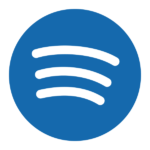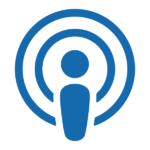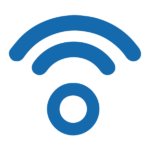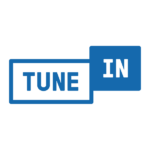Sarah Choujounian is a compassionate registered practical nurse who has been serving patients since 2004. Sarah worked primarily in nursing homes, where she developed a deep understanding of the needs of elderly residents. Her commitment to patient advocacy led her to become chief steward of her nursing home’s union. When the COVID-19 pandemic began, Sarah’s concern for her patients’ wellbeing motivated her to speak out about policies she believed were harmful. This led her to co-found Canadian Frontline Nurses, an organization dedicated to uniting nurses, educating the public, and upholding medical ethics. Sarah testifies about her experiences working in a nursing home during COVID-19 lockdowns, describing the negative impacts on residents and her efforts to speak out against policies she felt were harmful. She discusses facing professional consequences for her advocacy, including an ongoing disciplinary hearing with the College of Nurses of Ontario.
* The above video is being streamed via Rumble. Check back often as we continue to update the complete list of links to all witness testimonies in both video and audio/podcast formats.
Shawn Buckley
So I’d like to introduce our next witness. And Sarah, I don’t want to ruin your last name, and I’m sorry, it’s a difficult one. Can you introduce yourself by saying your full name?
Sarah Choujounian
Hi, my name is Sarah Choujounian.
Shawn Buckley
Okay, I’m glad I didn’t try that. And can you please spell your first and last name for the record?
Sarah Choujounian
S-A-R-A-H and then C-H-O-U-J-O-U-N-I-A-N
Shawn Buckley
Sarah, we swear our witnesses to tell the truth. Do you promise to tell the truth, the whole truth, and nothing but the truth?
Sarah Choujounian
Yes.
Shawn Buckley
Now, Sarah, you’ve been a nurse since 2004. Personally, you’ve got three children. You’ve got Latoyia, who’s 26, Naomi, who’s 18, and Sadie, who is 17. Now, when COVID came along, you were working as a nurse in two places. Can you tell us what happened?
Sarah Choujounian
Yes. So I worked as a nurse in a nursing home mostly. That was my main job. And I also worked in the community with kids. And so when the pandemic hit, it was actually very obvious to me that something was off. When you work in a nursing home, you know that the government doesn’t care about these people. They get the cheapest food possible, and as much medications as possible is pushed onto them. So I thought nobody was going to believe what was happening. Unfortunately, everybody did, and I was the only one that seemed to be concerned at work. I was actually chief steward of the union. And so I called the union and told them, “You know, what are we going to do? They’re taking away our rights. They’re taking away my resident’s rights.” And the union said, “Sarah, don’t you care about your residents?” And so I understood that I might lose my job if I kept talking and pushing my beliefs, and so I stopped talking.
Shawn Buckley
Can I just interrupt you for a second? So you are basically chief steward of the union for the nursing home that you worked at, and you’re getting concerned that the residents are losing their rights and that actually union members are going to lose their rights. And when you phone the union, there isn’t a discussion about protecting rights? It almost sounds like you were gaslit, like: “Don’t you care about the residents?” Can you give us a little more detail about that conversation?
Sarah Choujounian
Actually, at first so I called my union rep, which is the person that is higher than me that I contact when there’s a problem. And he actually didn’t know the answer to my question and said, “Oh, that’s interesting.” You know, he went along something like, “Oh, that’s interesting. I’m going to have to ask what to do.” And so he asked, and I think he called me back within the same day. And that’s when he told me why wouldn’t I want to go with what they’re saying, don’t I care about my residents.
Shawn Buckley
Okay, so what did you do after that?
Sarah Choujounian
I stayed quiet. I was a single mom of three. I couldn’t go to my other job. Anyone that worked in a nursing home was not allowed to work in another place, and so I lost hours. I was already in a lot of debt as a single mom, and so I stayed quiet for while and started seeing my residents deteriorate.
Shawn Buckley
Can you describe what you saw?
Sarah Choujounian
Yeah. I had a resident that died within a week, of a heart attack. People were saying it was a coincidence, but she was the type of resident that every time I came in in the morning, I had to call her daughter and know exactly what time her daughter was going to come in, because her mom was going to ask me every five minutes when her daughter was coming. And if her daughter was two minutes late, she would go into an anxiety mode. And she had heart problems, so you can imagine what happened to her after one week of her daughter not being able to come in. Also, we have to remember a lot of these people have language barriers, dementia, and really had no idea or didn’t understand what was going on, or didn’t care.
Shawn Buckley
Right, so you’re saying the residents: So basically they’re under lockdown, where the family can no longer come in and see them. You’re saying many of the residents didn’t understand what was going on.
Sarah Choujounian
Yeah, exactly. And we have residents that, you know, you have to think: The nursing home is the last stop for these people. And the only thing that really brings them to life is their families, when their families come in. And some of our residents would never eat from us, and their families had to come in for every meal or every day. And so what happened to those people? They call it failure to thrive. They just gave up on life and died alone. And it was just so detrimental.
Also, at some point, they started letting people come and do window visits. And that, I don’t even know, maybe that was worse than them not coming because that was even more confusing for some of them. And a few were getting agitated, and it was just so sad to see. And I heard management start talking about, for those people, that maybe they shouldn’t get visits. No one was talking about, like, how messed up this was and how we should let people in. We actually had—they hired volunteers to come feed people and help us from outside, and the families couldn’t come in. It just made no sense.
Shawn Buckley
So let me just follow up, because you used the term “failure to thrive,” and you basically described a situation where some of the residents literally depended on their families, where the families even had to come in to feed them. Now, I’m assuming that this is a very predictable consequence that should have been foreseen. So is this common in nursing homes, that there’s a percentage of the population that is so dependent on their families that it would be predictable that they would fail to thrive without their families coming in?
Sarah Choujounian
Absolutely. I would say that at anytime there’s two or three on my floor. So on a unit of 32 people, there’s at least two or three.
Shawn Buckley
Right. And when you have an entire system of nursing homes in a province where basically they’re being shut out from the outside world, then you’ve got a certain percentage that you know basically are going to die from that decision. Would that be fair to say?
Sarah Choujounian
Well, I thought of that immediately, so I don’t see why management or higher positions wouldn’t have thought of that.
Shawn Buckley
Okay. And so I’d interrupted. So you’re seeing these bad outcomes for your patients, or I should say even residents, because they can’t see their families. So what happened after that?
Sarah Choujounian
Well, things got worse. They actually started testing us and testing the residents. And in my nursing home, three housekeeping staff tested positive with absolutely no symptoms. And so now, not only is the facility and the units shut down, everybody in the facility—because housekeepers go around on every floor—had to now stay in their rooms for 14 days until everybody was tested negative again, after 14 days. And so we can imagine how detrimental that was. You know, if a resident did not want to listen to this—some of them are very demented, too, and already agitated knowing that their families are not coming in—and so if residents weren’t listening, they were said to have a behaviour. The doctor would be called and they would be sedated. I also witnessed situations where—
Shawn Buckley
Can I follow up? So basically, these residents are kept in their rooms 24 hours a day for 14 days because three staff members tested positive, but they didn’t have any clinical symptoms.
Sarah Choujounian
Exactly.
Shawn Buckley
But literally the residents now are confined to their rooms. They’re not allowed to leave their rooms for 14 days?
Sarah Choujounian
Yes.
Shawn Buckley
And I just bring that up, like, as a criminal lawyer, you can’t have somebody in solitary confinement that isn’t allowed out every 24 hours, because we consider it would be cruel and unusual and unconstitutional in that context. But that’s like on a 24 hour period. You’re talking about 14 days.
Sarah Choujounian
Yes. And if someone tested positive, it would start again. I’ve heard of nursing homes that did that for, like, three months at a time. Not at my nursing home, so maybe I shouldn’t talk about that. But at my nursing home also, if anyone was trying to get out of their room and getting agitated because they wanted to go walk in the hallway with their walker, and if they didn’t listen, they would just take their walker away. And that is so detrimental to their capacity to ambulate. But also, they’re alone in their room and they’re at risk for falls. And we all know if a resident falls, they’re at risk for hip fractures, and everything is—it’s all downhill from there, right?
Shawn Buckley
And I’ll just break in. When you say, you know, they lose their ability to ambulate, you mean walk? It’s just you’re using a medical term that some of the people viewing your testimony might not know. So what you’re seeing is: people that rely on walkers to keep walking, if they stop walking, they literally could lose their ability to walk in a short period of time.
Sarah Choujounian
Absolutely.
Shawn Buckley
Okay, thank you. I’m sorry for interrupting. Please carry on.
Sarah Choujounian
Oh, that’s fine. And, yeah, that was pretty much it. I started deteriorating myself. I just couldn’t watch this happen. It was also detrimental if a resident was about to pass away, then the family can come in, and they had 15 minutes. So let’s say if there was three people that wanted to visit before their parent or the resident passed away, they each had five minutes and they had to completely gown up—so the gown, the mask, the shield, the gloves. And it was just the resident sometimes did not recognize them or was already almost gone and on morphine. And so it was just, like, they didn’t even know. It was so inhumane. And so I decided to speak out.
Shawn Buckley
Right. Okay, so I’m just going to go over what you just described. So the resident is dying. So surely there could be no concern about the resident catching COVID from one of the family members, because the resident is just going to be taken to the morgue shortly. Am I right about that?
Sarah Choujounian
Yes.
Shawn Buckley
And as far as the family goes, you know, we’re just talking even if there is a risk, and they’re going to walk into the room once and they’re going to walk out and leave the facility, why would the facility care if they came and stayed all day in the room with their parent or other loved one?
Sarah Choujounian
That’s a great question. I did not understand that either. And as I said, they hired volunteers to come and feed the people that wouldn’t eat to help us, because we were understaffed, too.
Shawn Buckley
Okay, so you weren’t given an explanation as to why families of dying people were only allowed a maximum of 15 minutes collectively. So if there’s three of them, it’s five minutes each to say goodbye.
Sarah Choujounian
No, anytime I asked any question, it was said that this was Public Health’s policy and I just had to follow it.
Shawn Buckley
Okay, so you started speaking out. Tell me about that, and tell us about the consequences of that.
Sarah Choujounian
Well, at first I started posting, actually, in a private group online called Mothers Against Social Distancing. And I was quite happy because I felt very isolated and people were paying attention and I was, you know, getting a lot of feedback, and people were interested. So I kept posting about what was happening in the nursing home, like, “There’s three people with no symptoms and everyone’s locked down,” or, “We’re all being tested with this PCR test that’s not a diagnosis test.”
So I was saying things like that, and someone in the group took a screenshot, went to my profile, took a screenshot of where I was working—because I didn’t think I was doing anything wrong, so I wasn’t hiding that I was a nurse or where I worked—and a headquarter was informed right away and I was put under investigation where they wouldn’t even tell me why.
Shawn Buckley
Oh, so you’re being put under investigation for social media posts, but you’re not even told it’s for social media posts so that, you know, you could decide whether or not you wanted to continue posting.
Sarah Choujounian
Right. I had an idea because I was having so many problems with them. They were telling us to actually do a lot of things that were so wrong and that we weren’t supposed to do as nurses. Like, for example, we had to wear the same mask for 8 hours. Usually if you touch your mask, you have to change it. Or they were telling us to— Usually when people are in isolation, when you wear a gown, you actually have to take it off in a certain way: like inside out, not ever touch the outside, put it in a red—like in a box that will be taken away without you touching it. But now they were telling us to take off the gown and hang it up and put it back on. So there was a lot of things that I was complaining about and I was giving problems about. So I knew that, you know, I was kind of getting in trouble, but I didn’t know why exactly.
Shawn Buckley
Okay, so you’re told you’re on probation. What happens after that?
Sarah Choujounian
Well, I was quite upset that they were trying to shut me up when I was trying to help my residents. And someone actually approached me and asked me if I wanted to speak at a rally, and I absolutely. So I spoke at a rally within maybe a week of the investigation starting, or something like that. And so I spoke out on October 31st, 2020, founded Nurses Against Lockdown to unite all nurses, bring the ethics back into healthcare, and educate the public.
And so, yeah, I thought that was the day where all the nurses were going to come on stage and we were going to put an end to this. Unfortunately, that didn’t happen. And I was fired on the Monday. So that was Saturday, and I was fired on the Monday. Not fired, they didn’t say I was fired because I spoke out, but it was kind of obvious that they saw the video and that was it. The investigation was done.
Shawn Buckley
So what were the reasons given for your termination?
Sarah Choujounian
You know, I didn’t follow the social media policy and public health policies, and so I forget the exact wording, but it’s like misconduct.
Shawn Buckley
Okay, so can you share with us what types of things were you posting that all of a sudden, something that’s happening outside of work is a round of firing?
Sarah Choujounian
Well it was really like, we couldn’t talk anything. And this was in 2020, so it was actually really scary and weird what was happening. So, sorry, I forget the question.
Shawn Buckley
Well, I was just curious, what were you saying in your posts—
Sarah Choujounian
Oh, yeah.
Shawn Buckley
—that led to your firing?
Sarah Choujounian
Yeah, so things like, “How ridiculous is this? They shut down the entire nursing home for, you know, three housekeepers that had no symptoms.” And I guess the administrator really didn’t like it because I mentioned her in it. I was just like—because I asked her and she said, “No one has symptoms.” I just thought it was so ridiculous. But I also posted about how the PCR testing was irrelevant, and how wrong everything was. So I was posting against the narrative and the pandemic, basically. It was six tweets. Well, not all tweets. There were like some on Facebook and some on Twitter. And, yeah, there was six things, and that’s what they fired me for. I was just talking about what I was seeing.
Shawn Buckley
Did they give you a list?
Sarah Choujounian
Yes, I do have them. I have the actual posts. Yeah, sorry, I didn’t send you that. I sent you the twelve allegations from the College.
Shawn Buckley
Right. Well, we’ll get to that in a second. So you get fired. What happens after that?
Sarah Choujounian
Well, I thought the union was going to help me and represent me, but they were definitely not with me. So I had already spoken out, and another nurse, Kristin Nagel, saw me speaking out and we teamed up. And from there, we teamed up with nurses in the States, too. And that’s when we went to Washington, DC on January 6, 2021, not knowing at all it was a political thing. And so we kind of got mixed up in that.
Shawn Buckley
Right. So just because the commissioners and people watching your testimony might not understand when you’re referring to January 6th, you’re meaning the same January 6th where in Washington there was the rally by people that were concerned that the election wasn’t fair, and some people in the United States are saying that was an insurrection. So you happen to be basically on Capitol Hill, except you’re at the Supreme Court part for a health rally at the very same time that the other event is happening, literally a block away.
Sarah Choujounian
Yes.
Shawn Buckley
Okay, just so we’re there. And so you’re speaking at a health rally on January 6th, but you’re not there to participate in the other rally.
Sarah Choujounian
Absolutely not. Actually, we were supposed to go speak in Florida, but Del Bigtree and his assistant reached out to Aaron, who is one of the nurses in the States, and so we were excited. We thought we would have more people that were going to hear us. And so we decided to go to Washington. That’s how we ended up there: at a Freedom and Health Summit.
Shawn Buckley
Now, there’s an old adage that no good deed goes unpunished. What happened to you for going to this January 6th health event, and speaking?
Sarah Choujounian
So when we came back, I was fired from my second job. We were put under investigation —that was the first investigation by the College; I have, like, five or six now. And we were completely defamed internationally by the media, called domestic terrorists by some, countless death threats, even had the RCMP come at our door.
Shawn Buckley
Okay, just so everyone understands what you’re saying: So basically, the mainstream media goes after you and you are literally referred to as a domestic terrorist.
Sarah Choujounian
Yes.
Shawn Buckley
And various other things are said. Now you sent me two videos, which I’m not going to play during your testimony, but we will enter them as Exhibits R-072 and R-073 so that people can watch. There are two mainstream media clips about you and another person so that people can understand what you’re talking about. So basically, you are completely attacked when you get back. And, you know, did this surprise you? How did you feel about all of a sudden being a celebrity?
Sarah Choujounian
Yes, actually, it did. It surprised me a lot. Like, we weren’t expecting that at all. Thank God I wasn’t alone and Kristen was with me, because it was really scary, honestly. And I did the social media, so I really saw, you know, all the threats that were coming in, and it felt very dangerous and very scary, especially being on the media. And, you know, I went outside and I didn’t wear a mask, so some people were recognizing me. I felt in a lot of danger.
Shawn Buckley
Okay. And again, so Canada Frontline Nurses: You co-found that with Kristen Nagel.
Sarah Choujounian
Canadian Frontline Nurses, yes.
Shawn Buckley
Canadian, I’m sorry. And you guys have a social media presence, you have a website, you’re manning that, and there are death threats coming in, which include death threats against you personally.
Sarah Choujounian
Yes. Actually at that time, the social media was still Nurses Against Lockdown that I had founded when I first spoke out. But when we came back from Washington, we founded Canadian Frontline Nurses that was a chapter of Global Frontline Nurses that we had founded while we were in the States with the other nurses. So this was, like, the first chapter and we were going to try it out. And so it was, again, all about uniting nurses, educating the public, and bringing the ethics back into healthcare. So when the attacks came, it was still Nurses Against Lockdowns, but very shortly after I kind of merged the two pages and it became just Canadian Frontline Nurses.
Shawn Buckley
Now I have a very important inquiry now because, you know, for a little while you guys were actually attracting nurses. And now here we are in June 1st, 2024, the federal government is signalling they’re going to lock us down again. They’re changing the law to make the pandemic easier to deal with and have no liability. Is there now, you know, a group of nurses that are standing to unite healthcare professionals, that are standing to educate people on things like what happened with COVID, and are which standing for traditional nursing ethics, like informed consent?
Sarah Choujounian
I don’t think that there’s any nurses that are speaking out as much as we were about medical freedom, and we were actually creating a new healthcare paradigm. But there are a lot of groups of nurses. I know in BC there’s a very strong group, and nurses are going against their regulatory boards. And there are some, absolutely.
Shawn Buckley
Now we’re running out of time here, so what happened with you and the College? Because even this week, this is a relevant question because you were in proceedings this week. Tell us about what’s happening with the College of Nurses of Ontario.
Sarah Choujounian
Yes. So when we came back from Washington, I said that we were put under investigation by the College, so this disciplinary hearing is actually derived from that. And there was twelve allegations against me. And so, again, the PCR test is not a diagnosis test; I was saying that vaccines are not safe and effective; I was saying that there was alternatives like hydroxychloroquine and vitamin D. Some of them are videos of other people talking, other doctors talking. You know, there was something said about how there’s fetal matter in vaccines. So twelve allegations like that, basically.
Shawn Buckley
Right. It’s interesting, one of the allegations—and I’ll advise the commissioners: So the College put together a table of these, so they’ve listed them and we will enter those as exhibits R-070 and R-071; there’s two separate pages—but, Sarah, one of the allegations is you post a link to an audio file by Dr. Roger Hodkinson. And we played that on day one of these proceedings on May 30 and had Dr. Hodkinson as a witness testifying and basically saying today he stands by everything he said. So it’s interesting that you’re being disciplined for linking to an audio file by an esteemed pathologist who even today says everything he said was correct. So what’s happening with the College? So you’re in the middle of proceedings. Where are you?
Sarah Choujounian
Yeah. So it was supposed to be a seven-day trial: our experts against theirs. We’re now at day—it’s going to be day 20 on June 7th. You know, their experts have gone. My experts are Dr. Pelech, Steven Pelech, and Dr. Byron Bridle. Both have been only partially, very limitedly qualified. And so we’re having a hard time putting the evidence in. Actually, yesterday we had to put in a motion to ask: “How can we get this evidence in for when we actually go to court?” because we have to show that we tried and that they didn’t let us. So we’re really having a hard time with the case.
It’s also a public hearing, and they’re making it very difficult for people to watch and log in. People have to email them and ask for the links a few days before each court date, or court dates in that same month. And this is a very important case, actually. And in the case, it’s shown that everything that I said is now true, pretty much everything. But the problem is that there was no way of me knowing it back then, so it’s kind of that kind of ridiculous. And the case actually has precedence in Canada for freedom of speech in nursing, so it’s actually a very important case.
If I lose, nurses, as we saw, would no longer be able to be the last line of defence between the patient and the medical industry. And people would not be able to give an informed consent because we couldn’t give all the information. Informed consent means that people know the risks, the benefits, the alternatives, what it does in the body, and they can ask any questions that they want. And this didn’t happen. And this is why we spoke out.
Nurses, in nursing school, in ethics class, the first thing that we learn is that when the medical industry turns against the people, it’s our jobs to, I quote, “agitate and advocate for what is best for our communities.” So I actually did exactly what I was supposed to do, even with all the coercion and intimidation that they did. And so we would completely lose that. As we can see, nurses couldn’t speak up, and a lot of harm was done. So this is a very important case. If we win, it actually uncensors all the nurses and we have the power to do our jobs, which is being patient advocates. It’s one of our first main responsibilities.
Shawn Buckley
It’s curious. It’s almost like I didn’t hear you correctly, although, sadly, I know I did. So they’re not even saying that you were wrong in what you said. They’re saying, “Well, you couldn’t have known it at the time you said it.” Did I basically understand that correctly?
Sarah Choujounian
100%.
Shawn Buckley
Okay. So I just want the commissioners and those watching your evidence to understand. So you are basically facing currently—I mean, yesterday you were in proceedings, which is why you couldn’t testify yesterday—so you are currently facing professional misconduct proceedings. You’re having to defend yourself with a lawyer—this is serious—for things you said during the pandemic, when in good faith you were trying to advocate for patients. And you were right, but they’re saying, “Well, you couldn’t know that you were right at the time, so we need to discipline you for saying things that turned out to be correct as you were advocating for your patients.” Did I sum that up correctly?
Sarah Choujounian
Absolutely, and I just want to add—
Shawn Buckley
Okay, and then it makes perfect sense when I put it that way.
Sarah Choujounian
Yeah. Crazy. And I just want to add, because what I think made them even more mad is that on December 16th, 2020, they sent out an email censoring nurses, telling us that we were not allowed to speak against anything that Public Health said.
Shawn Buckley
Yes. Well, that sounds to be consistent with what we’ve heard with what other Colleges have communicated. So you shared with us basically some fundamental nursing ethics that nurses actually, you were trained have an ethical obligation to stand up when they see the pharmaceutical industry or anyone else has gotten out of line. And the nurses are the last line of defence for the patient. Which is why so if you get squashed, the message is that any nurses that stand up will be squashed. Is that why this is so important?
Sarah Choujounian
Yes.
Shawn Buckley
So how do people support this case that you’re in?
Sarah Choujounian
People can donate. Do you want me to say where?
Shawn Buckley
Sure.
Sarah Choujounian
Okay. So people can donate in two places. I have a Give, Send, Go. So givesendgo/sos_for_sarah. Or they can send an email at [email protected]. And another way that people can really help is—and this is very important; this is where I’m having, well, I’m having trouble with everything basically—but we need for people to log in and show interest. This is very important for the hearing. I was also told that, you know, when I do take it further up, the judges usually lean towards what the public wants. And so I really need to get, like, public awareness going. But I’m very censored. And so, you know, I need for people to help me and/or try to log on and watch the case, or just log on at least, so that they see that people are there.
Shawn Buckley
Okay. So people, if they’re following what’s going on, even the act of watching the proceedings and getting their network to watch the proceedings will send a message to the adjudicator that the public is watching what they’re doing. So basically, so that they know that the public is interested, and that in itself would give you support.
Sarah Choujounian
Yes. And people have to email them to get the links, and they can email them at [email protected].
Shawn Buckley
And they can also call and email the Ontario College of Nurses and ask how they can follow the proceedings so that they’re signaling that the proceedings are going to be watched. I’m going to ask the commissioners if they have any questions for you, Sarah.
Sarah Choujounian
Okay, thank you.
Commissioner Drysdale
Good evening, Sarah.
Sarah Choujounian
Good evening.
Commissioner Drysdale
I have a couple of questions. You, as an RN in this facility, you were dealing directly on a one-on-one basis with the residents, is that correct?
Sarah Choujounian
Oh, yes. I have to say that now my license is suspended, but I was a registered practical nurse.
Commissioner Drysdale
Okay. So you were essentially on a daily basis interfacing with these residents and you were observing in real time what was happening and what the effects of the actions of the facility were having on them, correct?
Sarah Choujounian
Yes.
Commissioner Drysdale
What did the attending doctors say to you when you met with them to discuss your patients or your residents each day?
Sarah Choujounian
The doctors never came in after the facilities were shut down. Everything was done through Zoom. I didn’t hear about or see the doctor. I think once I had to send them pictures of a wound and he wanted to know this— Like, they didn’t come in. So we didn’t even have the same kind of access to doctors. We can call them as usual and get orders in that way, but doctors stopped coming in when the facilities shut down.
Commissioner Drysdale
So the facilities are shut down. The residents, in your own words, were under great stress. They were confused. They didn’t know what was going on. Some of them were giving up on life. And the doctors didn’t come to check on their patients?
Sarah Choujounian
No.
Commissioner Drysdale
What about the regulators? How often did you see the regulators coming in to monitor what was going on in the facilities, given these unusual times and these lockdowns? How often did the regulators come in and talk to you personally about what was going on with those residents?
Sarah Choujounian
Sorry, what do you mean by regulators?
Commissioner Drysdale
Well, I’m assuming by your question that there weren’t representatives from the government, independent representatives, visiting the facility to see what was going on and how the patients were doing?
Sarah Choujounian
No.
Commissioner Drysdale
So Ontario Health, or whatever they’re called in Ontario had, according to your testimony, enacted these measures, which according to your testimony were known to have deleterious effects on the patients. And yet those same people that enacted those orders weren’t coming in to check on the effect of the orders?
Sarah Choujounian
No, not that I saw. Not even once.
Commissioner Drysdale
So apart from yourself, then, there was no one there to advocate for these people?
Sarah Choujounian
No. Well, there’s management. They’re supposed to, but they definitely weren’t.
Commissioner Drysdale
Did you have daily scrums with management to discuss the individual patients one on one?
Sarah Choujounian
No. Anytime if we did have any meetings with them, it was about more isolation, more lockdowns, like more restrictions. And that was, again, a problem I had because I complained about that, too.
Commissioner Drysdale
Well let me ask you a question about that, because you talked about that several times. You said there was lockdowns, and 14 days, and if somebody tested positive after the 14 days, it started again. Is that not telling us lockdowns were not effective? If they kept getting infected and they were locked away from their loved ones and they were in isolation, doesn’t that mean that that procedure wasn’t working or wasn’t effective?
Sarah Choujounian
I would think so.
Commissioner Drysdale
But if it wasn’t effective, and in your testimony you said that this had tremendous deleterious effects on these people—because we call them residents or we called them elderly, but what we’re talking about is people, are we not?
Sarah Choujounian
Absolutely.
Commissioner Drysdale
So you were saying that they were giving up on life. Some people were dying, And it obviously wasn’t working because you said that infections kept happening and then they would start the clock again. Why would they continue in a procedure that was so damaging to these people, and yet continue it?
Sarah Choujounian
Oh, sorry, maybe I misspoke. But in the nursing home where I was, it was just the three housekeepers that tested positive. And then after 14 days, they weren’t positive anymore. And I was kind of put under investigation around that time, and so I wasn’t there to see, you know, what happened when the vaccines were given or afterwards. None of my residents had actually tested positive for COVID.
Commissioner Drysdale
So none of them tested positive for COVID, but they were still locked down. Would it not have been possible to continue to monitor them to see if any COVID was coming in as opposed to just locking them up, considering the effects of the lockup?
Sarah Choujounian
Absolutely. We even know that residents are more prone to viruses when they’re under stress and that they do better and there’s less viruses when their families are around. Because they’re in a better spirit, they’re in a better mood, and their mental health definitely affects their physical health too.
Commissioner Drysdale
So the doctors weren’t there to monitor them in person. There was nobody from Ontario Health coming in to regulate and see what was going on.
Sarah Choujounian
Nope.
Commissioner Drysdale
You’re just on your own?
Sarah Choujounian
Yeah. They even stopped doing rehabilitation and physiotherapy. There was no more activities. It was just they just had to stay isolated in their rooms. And we know that isolation is really bad for your immune system and can put you at risk for all kinds of things, including viruses.
Commissioner Drysdale
And you weren’t really given an opportunity to report this or discuss this with the nursing association or with the doctors, or what about the people’s sons and daughters and grandchildren? Were you not able to contact them and tell them what was going on?
Sarah Choujounian
Nobody complained and everybody went with it. I just couldn’t believe it. I still can’t believe it. There was families that were so adamant about their parents’ care and were there every day, and everybody listened. I had maybe one resident’s daughter that I spoke to, but she wasn’t the power of attorney and the other daughter didn’t feel the same way as her, and so she didn’t have a say.
Commissioner Drysdale
How did they get informed consent from all of these residents or people, if they—I’m assuming some of them were not competent to give informed consent?
Sarah Choujounian
Informed consent for what?
Commissioner Drysdale
For any kind of procedure or that was going on at the time. I know you weren’t there when the shots were rolled out, but even the care. I mean, that’s a change in care, is it not, when you lock somebody up when they’re on a regime of exercise or physiotherapy and you change that and you lock them up? Doesn’t someone have to give permission to do that? That’s a change in procedure, is it not?
Sarah Choujounian
Yes, but everything was thrown out the window. There was no more rules like that. Everything was: “We’re in an emergency, we have to save these people. We’re going to do everything they say, and we are not allowed to ask questions.” We were not allowed to ask questions.
Commissioner Drysdale
Thank you very much.
Shawn Buckley
Sarah, the commissioners don’t have any further questions. On behalf of the National Citizens inquiry, I sincerely thank you for attending today as a witness.
Sarah Choujounian
Thank you for having me.
Credentials
Sarah Choujounian is a compassionate registered practical nurse who has been serving patients since 2004. As a single mother of three children, she has demonstrated dedication to both her family and her profession. Sarah worked primarily in nursing homes, where she developed a deep understanding of the needs of elderly residents. Her commitment to patient advocacy led her to become chief steward of her nursing home’s union. When the COVID-19 pandemic began, Sarah’s concern for her patients’ wellbeing motivated her to speak out about policies she believed were harmful. This led her to co-found Canadian Frontline Nurses, an organization dedicated to uniting nurses, educating the public, and upholding medical ethics. Sarah’s courage in standing up for her beliefs, even in the face of professional consequences, showcases her unwavering commitment to patient care and nursing ethics.
Summary
Sarah Choujounian testifies about her experiences as a registered practical nurse working in a nursing home during the COVID-19 pandemic. She describes how lockdown policies negatively impacted residents, including isolation from family members, confinement to rooms, and rapid health deterioration. Sarah expresses concern over the lack of consideration for residents’ quality of life and the absence of informed consent for these measures.
She recounts her efforts to speak out against these policies, first within her workplace and union, then through social media and public speaking engagements. Sarah describes co-founding Canadian Frontline Nurses to advocate for medical ethics and patient rights. She details the professional consequences she faced for her advocacy, including termination from her nursing positions and ongoing disciplinary proceedings with the College of Nurses of Ontario.
Sarah emphasizes the importance of her case for nursing ethics and freedom of speech, explaining that the outcome could set a precedent for nurses’ ability to advocate for patients. She expresses frustration with the disciplinary process, noting difficulties in presenting evidence and the public’s limited access to the hearings. Sarah concludes by calling for public support and awareness of her case, highlighting its significance for the future of patient advocacy in nursing.









